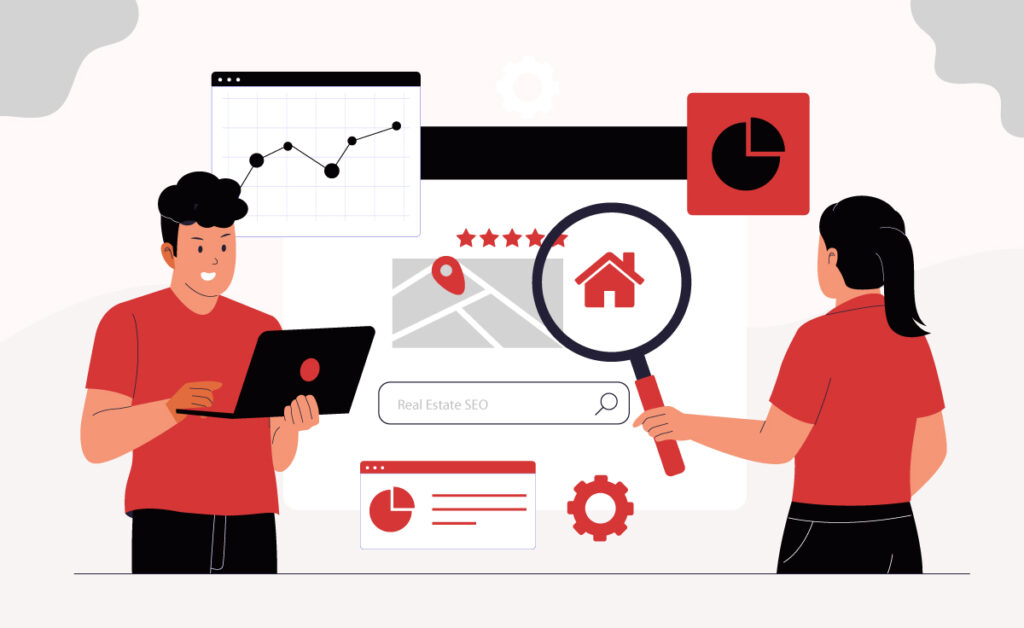For most agencies, scaling SEO services comes with a dilemma. Clients want deeper expertise, faster turnarounds, and measurable results, but building an in-house SEO team requires time, budget, and constant training. That’s why many agencies turn to white-label SEO. It allows you to expand your offerings, win larger retainers, and enter new verticals without increasing headcount.
The model works, but only when you choose the right partner. A reliable white-label SEO provider strengthens your reputation with solid audits, transparent reporting, and scalable delivery. A poor one does the opposite, delivering shallow work, cutting corners, and damaging the trust you’ve worked hard to build with clients.
Since 2010, we’ve seen agencies scale up SEO services for big names in retail, finance, and hospitality using white-label setups. The pattern is clear: agencies that grow are those with a solid partner evaluation framework.
This guide shows you how to evaluate, compare, and choose a white-label SEO partner that helps your agency grow with confidence.
Why the Right White Label SEO Partner Matters?
Agencies often turn to white-label SEO to scale without adding more staff. By outsourcing delivery, you can take on bigger retainers, expand into new verticals, and grow revenue while keeping your in-house team focused on strategy and client relationships. It’s one of the most practical ways to grow without the overhead of building a full SEO department.
The challenge comes when you choose the wrong partner. A weak vendor can put your reputation at risk by delivering:
- Shallow audits that miss critical technical issues
- Risky link-building schemes that expose clients to penalties
- Generic, cookie-cutter reports that fail to provide real insight
The fallout is costly: clients lose trust, churn increases, refund requests pile up, and your brand takes the hit.
The right partner creates the opposite effect. With strong processes in place, you gain:
- Faster, more reliable campaign launches
- Transparent, editable reports you can share directly with clients
- Clear ownership of deliverables and accountability
- Work that your account managers can present with confidence
This is the benchmark to hold when evaluating any white-label SEO provider.
Also Read: A Guide on How to Build a Successful White Label Partnership
Key Qualities of a Reliable White Label SEO Partner
Here’s how you can spot a reliable white label SEO partner:
● Expertise you can measure
A strong white-label SEO partner does more than surface-level fixes. They should be equipped to tackle technical challenges like crawl errors, Core Web Vitals, and schema markup. If they can’t clearly explain how Googlebot processes JavaScript or why INP (Interaction to Next Paint) replaced FID in Core Web Vitals in 2024, they’re not prepared to manage your accounts effectively.
● Transparent reporting
Transparent reporting means giving you full visibility into the work being done and the results being achieved. A dependable partner provides editable reports, GA4 dashboards you can access anytime, and raw source files you can confidently share with clients. Anything less, like screenshots or locked PDFs, suggests they may be concealing important details rather than showing the complete picture.
● Scalable delivery
Consider how your partner handles growth. If you bring in five new accounts next quarter, can they onboard each one without cutting corners? Strong partners have standard operating procedures, resource planning, and queue systems in place to manage demand smoothly. Weak partners scramble, relying on ad-hoc freelancers and crossed fingers, which leads to inconsistent quality and missed deadlines.
Comparing a Good vs a Bad White Label SEO Partner
| Good Partner | Bad Partner |
| Provides full audits with fixes | Sends generic checklists |
| Earns links from relevant publishers | Buys links from random directories |
| Transparent GA4 dashboards | Sends locked PDFs only |
| Maps strategy to client goals | Talks about ’traffic’ with no context |
| Flexible with your templates | Forces their own branding |
The Three-Step Evaluation Framework
Here’s a quick framework to use:
Evaluate → Shortlist → Partner
- Evaluate: Audit your pipeline. Define must-haves (local SEO, technical fixes, PR).
- Shortlist: Test 2–3 partners with a small paid pilot. Same brief and same deadline.
- Partner: Pick the one that nails delivery and communication. Scale from there.
Evaluating Services Offered By a Partner
A reliable White Label SEO Partner should cover the full spectrum of SEO, not only one or two areas.
- On-page SEO focuses on what lives directly on the site, things like keyword mapping, heading structure, internal linking, and structured data. Done right, these make pages easier for both users and search engines to understand.
- Off-page SEO is about authority and reach. It involves digital PR campaigns and guest contributions. It also involves earning placements in industry-relevant publications that boost trust signals and referral traffic.
- Technical SEO is backend work. This covers crawl depth, canonical management, site speed audits, and ensuring mobile-first indexing, all of which affect how search engines access as well as rank your site.
- Local SEO zeroes in on geography. From keeping Google Business Profiles accurate to managing reviews, citations, and location pages, it ensures businesses show up where local buyers are searching.
SEO no longer works in isolation. The strongest white-label setups connect SEO with other marketing channels so insights flow in both directions.
- If you’re running white-label social media, the SEO team should know which posts are driving traffic so they can optimize the landing pages behind them.
- If you’re handling white-label PPC, keyword data should be shared both ways. PPC campaigns often uncover fast-moving trends that SEO can turn into long-term assets.
Example:
Imagine a client runs an online coffee brand. PPC data shows that ‘organic coffee New York’ delivers strong conversions at low cost.
- A weak partner keeps PPC and SEO separate, which means you end up paying twice to optimize for the same audience.
- A strong partner applies that PPC insight to SEO by creating optimized blog posts, local landing pages, and link-building campaigns around the exact keyword.
The result is more conversions without doubling your ad spend.
Cost versus value in Outsourcing SEO
One of the biggest decisions you’ll face when outsourcing SEO is how to structure pricing. On the surface, the numbers may look straightforward, but the wrong model, or the wrong partner, can end up draining profits instead of driving growth. Understanding how pricing works will help you avoid common traps and choose the setup that actually supports your agency’s goals.
Per-project pricing
This model is best for short-term, clearly defined needs such as:
- Website migrations
- Full SEO audits
- Preparing for a redesign or relaunch
The strength of per-project pricing is predictability. You know the scope, the timeline, and the cost upfront. The limitation is momentum; once the project ends, the SEO work stops, which means there’s no compounding benefit over time.
Monthly retainers
This model is designed for agencies that want steady, long-term growth. SEO is a compounding process where:
- Content authority builds gradually
- Backlinks accumulate and strengthen credibility
- Technical improvements continually enhance performance
Retainers spread the investment across months, keeping campaigns active and results moving upward. If your goal is sustained traffic and lead generation, this is usually the better fit.
FAQs
How do you pick a good SEO company?
Ask them to show you at least three past client examples with results. You need to see numbers like ‘organic leads grew 42% in six months’ or ‘average keyword positions moved from page 4 to page 1 for 25 terms.’ Ask for screenshots. After that, run a paid pilot project. Give them one site, one month, and see if they can deliver the basics, i.e., good audit, fixes shipped, and reporting you can hand straight to your client.
Is paying someone to do SEO worth it?
Yes, if you tie it to revenue goals and not vanity metrics. More than 53% of all website traffic is from Google searches, so if you’re not investing in SEO, your competitors are getting that traffic instead.
You can think of it as an investment; good SEO brings in qualified visitors, reduces ad spend, and keeps working long-term. Just make sure success is measured in revenue and conversions, not just rankings.
What’s an example of a white-label partnership?
Let’s say a local marketing agency signs with a gym chain for SEO. However, the agency doesn’t have an in-house SEO team. So, they hand it off to a white-label SEO partner. The partner does all the work, technical fixes, local SEO, and link building. But everything gets delivered in the agency’s logo and report format. The gym only ever sees the agency. The agency keeps the client relationship, the markup, and the credit, while the partner stays invisible, does the work, and gets their paycheck each month.
Final Words
A reliable white-label SEO partner gives your agency speed, scale, and client confidence. The difference between growth and frustration often comes down to choosing a partner with proof, not promises. Look for technical expertise, transparent reporting, and delivery systems that hold up when you add more clients. The right choice creates smoother launches, stronger results, and reports you can share without hesitation.
Treat partner selection as a business-critical decision. Test, measure, and choose the provider who delivers consistently. With a strong partner managing SEO execution, your team can stay focused on strategy, client relationships, and growth. That’s exactly the role Justwords Digital plays, helping agencies scale with confidence while the heavy lifting happens in the background. Partner with Justwords Digital today and scale your agency with confidence.





